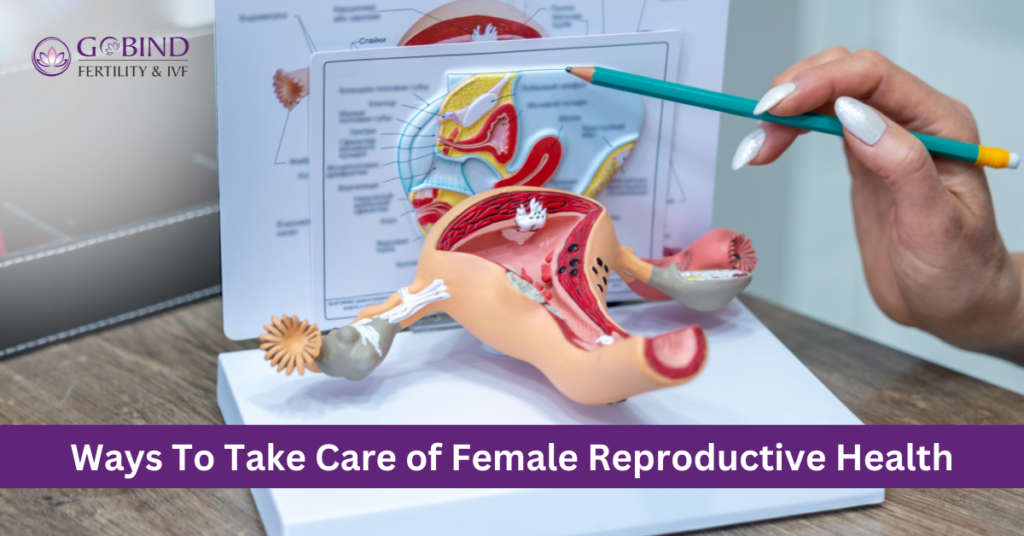Ways To Take Care of Women’s Reproductive Health

1. Practice safe sex
Use condoms or other forms of birth control to prevent unintended pregnancy and sexually transmitted infections.
2. Get regular screenings
Regular gynaecological exams, including Pap tests, mammograms, and HPV tests, can help detect any abnormalities early on and improve the chances of successful treatment.
3. Regular STDs screening
There should be enough amount of awareness among men regarding sexually transmitted diseases like HIV (human immunodeficiency virus), Syphilis, Chlamydia and Herpes. Till now there is no vaccine for them, prevention is the only key to protection regarding these diseases. The use of contraceptives should also be promoted. You will have to follow the doctor’s instructions regarding screening.
4. Stay up to date on vaccinations
Getting vaccinated against certain diseases, such as HPV, and the Rubella vaccine can help prevent reproductive health problems. To learn more about vaccinations, meet Dr Manju Khurana at the Best IVF centre in Hisar.
5. Maintain a healthy lifestyle
Eating a balanced diet, doing regular exercise and yoga, managing weight, getting eight hours of sleep, and managing stress can help maintain overall health and reduce the risk of reproductive health problems.
6. Address any pain or discomfort
Any pain, discomfort, or unusual vaginal discharge should be addressed seriously and consult a gynaecologist so that treatment can be done promptly. Besides this family and friends’ support and healthy discussion can save you from reproductive health issues.
7. Avoid smoking and excessive drinking
Both smoking and excessive drinking can negatively impact reproductive health and increase the risk of certain cancers. Smoking can impact sperm quality also.
8. Know your family history
Knowing your family’s history of reproductive health problems like PCOD, TB, POF etc. can help you and your healthcare provider make informed decisions about screening and prevention.
9. Consider hygienic menstrual products
Standard sanitary pads or recycled cloth pads can be a good choice. Maintain menstrual hygiene while changing the pads frequently and keeping the area clean.
10. Try to maintain good personal hygiene
You must avoid using chemical products like Talcum powder, perfumes, or hair removal creams around the genital area. Wear undergarments of a good breathable fabric like cotton and ensure it is not tight. Don’t insert any unhygienic objects into the vagina.
